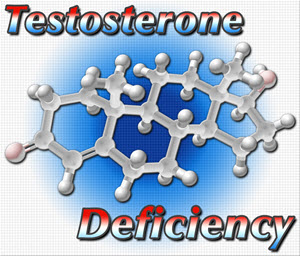Introduction
In recent years, the correlation between sedentary lifestyles and various health issues has become a focal point of medical research. Among the less discussed but significant concerns is the impact of inactivity on male genital health, particularly the phenomenon known as penis shrinkage. This article aims to shed light on this topic, offering insights and guidance for American males concerned about their health and well-being.
Understanding Penis Shrinkage
Penis shrinkage, or the perceived reduction in penis size, can be a distressing issue for many men. While aging and certain medical conditions can contribute to this phenomenon, a sedentary lifestyle is increasingly recognized as a significant factor. Prolonged sitting and lack of physical activity can lead to poor circulation, which in turn can affect the health of the genital area. This can result in a decrease in penile length and girth, particularly when flaccid.
The Role of Sedentary Lifestyles
A sedentary lifestyle, characterized by extended periods of sitting and minimal physical activity, has been linked to numerous health problems, including obesity, heart disease, and diabetes. For men, the implications extend to genital health. Studies have shown that men who spend more time sitting are at a higher risk of experiencing issues related to erectile function and penis size. The primary mechanism behind this is the compression of blood vessels and nerves in the pelvic region, which can impair blood flow to the penis.
Mechanisms of Impact
When a man sits for long periods, the pressure exerted on the perineum—the area between the scrotum and the anus—can restrict blood flow to the penis. This can lead to a condition known as venous leakage, where blood is unable to be retained in the penile tissue, resulting in difficulties achieving and maintaining an erection. Over time, this chronic poor circulation can contribute to the atrophy of penile tissue, leading to a reduction in size.
Preventive Measures and Lifestyle Changes
To mitigate the risks associated with a sedentary lifestyle, American males are encouraged to adopt more active habits. Regular exercise, particularly activities that engage the pelvic muscles, can improve blood flow and support overall genital health. Simple changes, such as taking breaks to stand and walk every hour, can make a significant difference. Additionally, maintaining a healthy weight through diet and exercise can reduce the pressure on the pelvic region and enhance circulation.
Medical Interventions
For those already experiencing symptoms of penis shrinkage, consulting a healthcare provider is crucial. Medical interventions may include medications to improve blood flow, such as phosphodiesterase type 5 inhibitors, commonly used for erectile dysfunction. In more severe cases, surgical options like penile implants may be considered. However, the first line of defense should always be lifestyle modification.
Psychological Impact and Support
The psychological impact of perceived penis shrinkage should not be underestimated. Feelings of inadequacy and anxiety can exacerbate the issue, creating a vicious cycle of stress and further health deterioration. Seeking support from mental health professionals can be beneficial. Cognitive-behavioral therapy and other forms of counseling can help men cope with the emotional aspects of this condition and improve their overall quality of life.
Conclusion
The effects of a sedentary lifestyle on male genital health, particularly penis shrinkage, are a growing concern that warrants attention. By understanding the mechanisms behind this issue and taking proactive steps to lead a more active lifestyle, American males can safeguard their health and well-being. Regular physical activity, combined with medical and psychological support when necessary, can help mitigate the risks and improve outcomes. As with many health-related issues, prevention and early intervention are key to maintaining optimal genital health.
Contact Us Today For A Free Consultation

- Penile Atrophy: Recognizing Early Signs and Importance of Timely Intervention for American Males [Last Updated On: February 22nd, 2025] [Originally Added On: February 22nd, 2025]
- Unveiling the Facts: Penis Size Transformation [Last Updated On: February 25th, 2025] [Originally Added On: February 25th, 2025]
- Size Perception: Unveiling the Phenomenon of Penis Shrinkage and Its Root Causes [Last Updated On: February 26th, 2025] [Originally Added On: February 26th, 2025]
- Embracing Natural Progression: Understanding the Impacts of Age on Male Physicality [Last Updated On: February 27th, 2025] [Originally Added On: February 27th, 2025]
- Deciphering the Enigma: Linking Hormonal Balance, Health and Penile Size Variations [Last Updated On: February 28th, 2025] [Originally Added On: February 28th, 2025]
- Examining the Dynamic Relationship: Body Weight, Dietary Habits, and Male Genital Proportions [Last Updated On: February 28th, 2025] [Originally Added On: February 28th, 2025]
- Addressing the Elephant in the Room: Understanding and Discussing Penis Shrinkage [Last Updated On: March 1st, 2025] [Originally Added On: March 1st, 2025]
- Understanding the Stress-Penis Health Nexus: An Objective Exploration [Last Updated On: March 2nd, 2025] [Originally Added On: March 2nd, 2025]
- Unveiling Andropause: Understanding Male Menopause and Its Effects on Penile Size [Last Updated On: March 2nd, 2025] [Originally Added On: March 2nd, 2025]
- Comprehensive Overview of Testosterone: Roles in Muscle Growth, Fat Distribution, Bone Density, and Age-Related Changes [Last Updated On: March 3rd, 2025] [Originally Added On: March 3rd, 2025]
- Expectations After Prostate Surgery: Physical and Psychological Impacts [Last Updated On: March 4th, 2025] [Originally Added On: March 4th, 2025]
- Exploring the Impact of Exercise on Male Sexual Health and Erectile Function [Last Updated On: March 5th, 2025] [Originally Added On: March 5th, 2025]
- Exploring the Impact of Vascular Health on Penis Size and Erectile Function [Last Updated On: March 6th, 2025] [Originally Added On: March 6th, 2025]
- Unveiling the Truth: Genetics, Lifestyle, and the Phenomenon of Penis Shrinkage in American Males [Last Updated On: March 6th, 2025] [Originally Added On: March 6th, 2025]
- Impact of Smoking and Alcohol on Male Sexual Health: Lifestyle Factors Unveiled [Last Updated On: March 7th, 2025] [Originally Added On: March 7th, 2025]
- Understanding Penis Size Concerns: Myths, Causes, and Real Solutions for Men's Health [Last Updated On: March 8th, 2025] [Originally Added On: March 8th, 2025]
- Comprehensive Insights into Chronic Illnesses Impacting Male Genital Health: A Holistic Approach [Last Updated On: March 9th, 2025] [Originally Added On: March 9th, 2025]
- Unveiling the Link Between Diabetes and Reduced Size: A Metabolic Perspective [Last Updated On: March 12th, 2025] [Originally Added On: March 12th, 2025]
- Unveiling the Truth: The Impact of Environmental Toxins on Male Genital Health [Last Updated On: March 13th, 2025] [Originally Added On: March 13th, 2025]
- A Global Insight into Penile Shrinkage: Understanding and Addressing a Universal Concern Among Men [Last Updated On: March 15th, 2025] [Originally Added On: March 15th, 2025]
- Weight Loss Reverses Penis Shrinkage: Evidence and Benefits for American Males [Last Updated On: March 17th, 2025] [Originally Added On: March 17th, 2025]
- Obesity's Impact on Male Genital Health: Understanding Penis Shrinkage and Solutions [Last Updated On: March 18th, 2025] [Originally Added On: March 18th, 2025]
- Inflammation and Oxidative Stress: Key Factors in Penis Shrinkage and Management Strategies [Last Updated On: March 18th, 2025] [Originally Added On: March 18th, 2025]
- Hypertension's Impact on Penile Size: Understanding Shrinkage in American Males [Last Updated On: March 19th, 2025] [Originally Added On: March 19th, 2025]
- Natural Remedies for Preventing Penile Shrinkage: Herbs, Supplements, and Lifestyle [Last Updated On: March 19th, 2025] [Originally Added On: March 19th, 2025]
- Hormonal Imbalances and Penis Shrinkage: Understanding Endocrine Disruptions in Males [Last Updated On: March 19th, 2025] [Originally Added On: March 19th, 2025]
- Understanding Penile Aging: Size Changes, Causes, and Health Maintenance Tips [Last Updated On: March 20th, 2025] [Originally Added On: March 20th, 2025]
- Diet and Nutrition Strategies to Combat Penis Shrinkage in American Males [Last Updated On: March 20th, 2025] [Originally Added On: March 20th, 2025]
- Chronic Stress, Cortisol, and Penile Health: Understanding and Managing the Impact [Last Updated On: March 21st, 2025] [Originally Added On: March 21st, 2025]
- Penile Measurement Techniques and Understanding Shrinkage Factors [Last Updated On: March 22nd, 2025] [Originally Added On: March 22nd, 2025]
- Understanding Penis Size: Measurement, Factors, and Shrinkage Management [Last Updated On: March 22nd, 2025] [Originally Added On: March 22nd, 2025]
- Penis Shrinkage and ED: Causes, Overlap, and Treatment Options for American Males [Last Updated On: March 23rd, 2025] [Originally Added On: March 23rd, 2025]
- Prostate Health and Its Impact on Penis Size: Understanding and Managing Changes [Last Updated On: March 23rd, 2025] [Originally Added On: March 23rd, 2025]
- Understanding Penis Shrinkage: Causes, When to See a Urologist, and Treatment Options [Last Updated On: March 23rd, 2025] [Originally Added On: March 23rd, 2025]
- Understanding Penile Shrinkage: Causes, Prevention, and Health Tips for American Men [Last Updated On: March 23rd, 2025] [Originally Added On: March 23rd, 2025]
- HRT's Role in Preventing Penis Shrinkage: Benefits and Risks for American Males [Last Updated On: March 24th, 2025] [Originally Added On: March 24th, 2025]
- Relationship Dynamics and Penis Size Perception: Understanding Shrinkage and Its Impacts [Last Updated On: March 24th, 2025] [Originally Added On: March 24th, 2025]
- Medications Linked to Penile Shrinkage: Causes, Risks, and Management Strategies [Last Updated On: March 24th, 2025] [Originally Added On: March 24th, 2025]
- Understanding Penile Atrophy: Causes, Symptoms, and Importance of Urological Exams [Last Updated On: March 24th, 2025] [Originally Added On: March 24th, 2025]
- Preventing Penis Shrinkage: Lifestyle Tips for American Males [Last Updated On: March 24th, 2025] [Originally Added On: March 24th, 2025]
- Understanding Penile Shrinkage: Causes, Impacts, and Breaking the Stigma in American Men [Last Updated On: March 25th, 2025] [Originally Added On: March 25th, 2025]
- Understanding Penile Atrophy: Causes, Effects, and Treatments for American Men [Last Updated On: March 25th, 2025] [Originally Added On: March 25th, 2025]
- Smoking and Penis Shrinkage: Cessation Strategies and Genital Health Recovery [Last Updated On: March 25th, 2025] [Originally Added On: March 25th, 2025]
- Sleep Disorders and Penis Shrinkage: Impacts on American Males' Sexual Health [Last Updated On: March 25th, 2025] [Originally Added On: March 25th, 2025]
- Environmental Pollution's Impact on Male Reproductive Health and Penis Size in America [Last Updated On: March 25th, 2025] [Originally Added On: March 25th, 2025]
- Peyronie's Disease: Understanding Penis Shrinkage and Treatment Options for American Males [Last Updated On: March 25th, 2025] [Originally Added On: March 25th, 2025]
- Anti-Inflammatory Diets: A Strategy to Prevent Penis Shrinkage in American Males [Last Updated On: March 26th, 2025] [Originally Added On: March 26th, 2025]
- Sleep's Impact on Sexual Health: Preventing Penile Shrinkage in American Males [Last Updated On: March 26th, 2025] [Originally Added On: March 26th, 2025]
- Weight Loss and Penis Size: Understanding Changes in American Men [Last Updated On: March 26th, 2025] [Originally Added On: March 26th, 2025]
- Chronic Illnesses and Penis Shrinkage: Causes, Impacts, and Management Strategies for American Males [Last Updated On: March 26th, 2025] [Originally Added On: March 26th, 2025]
- Meditation and Stress Reduction: Key to Preventing Penis Shrinkage in American Men [Last Updated On: March 26th, 2025] [Originally Added On: March 26th, 2025]
- Coping with Perceived Penis Shrinkage: Psychological Strategies for American Men [Last Updated On: March 26th, 2025] [Originally Added On: March 26th, 2025]
- Metabolic Syndrome Linked to Penis Shrinkage in American Males: Causes and Prevention [Last Updated On: March 26th, 2025] [Originally Added On: March 26th, 2025]
- Genetic Variability and Its Impact on Penis Size and Shrinkage [Last Updated On: March 26th, 2025] [Originally Added On: March 26th, 2025]
- Innovative Treatments for Penis Shrinkage: Stem Cells, Shockwave, and Pharmacological Advances [Last Updated On: March 27th, 2025] [Originally Added On: March 27th, 2025]
- Boost Testosterone Naturally: Diet, Exercise, and Lifestyle to Prevent Penis Shrinkage [Last Updated On: March 27th, 2025] [Originally Added On: March 27th, 2025]
- Inflammation's Role in Penis Shrinkage: Cellular Mechanisms and Prevention Strategies [Last Updated On: March 27th, 2025] [Originally Added On: March 27th, 2025]
- Cardiovascular Fitness: Key to Preventing Penile Shrinkage in American Men [Last Updated On: March 27th, 2025] [Originally Added On: March 27th, 2025]
- American Men's Experiences with Penile Atrophy: Causes, Treatment, and Coping Strategies [Last Updated On: March 27th, 2025] [Originally Added On: March 27th, 2025]
- Guide to Accurate Penis Measurement and Understanding Shrinkage for American Males [Last Updated On: March 27th, 2025] [Originally Added On: March 27th, 2025]
- Preventing Penile Shrinkage: Enhancing Vascular Health in American Males [Last Updated On: March 27th, 2025] [Originally Added On: March 27th, 2025]
- Androgens' Crucial Role in Preventing Penile Shrinkage Among American Males [Last Updated On: March 27th, 2025] [Originally Added On: March 27th, 2025]
- Managing Penis Shrinkage in Aging Men: Causes, Impacts, and Interventions [Last Updated On: March 27th, 2025] [Originally Added On: March 27th, 2025]
- Regular Exercise: A Key to Preventing Age-Related Penile Shrinkage in Men [Last Updated On: March 27th, 2025] [Originally Added On: March 27th, 2025]
- Emerging Therapies Revolutionize Treatment of Penis Shrinkage in American Males [Last Updated On: March 28th, 2025] [Originally Added On: March 28th, 2025]
- Managing Penile Atrophy: Causes, Diagnosis, and Effective Strategies for American Males [Last Updated On: March 28th, 2025] [Originally Added On: March 28th, 2025]
- Alcohol Consumption and Penis Size: The Importance of Moderation in American Males [Last Updated On: March 28th, 2025] [Originally Added On: March 28th, 2025]
- Penis Size and Sexual Health: Function, Sensation, and Holistic Well-being [Last Updated On: March 29th, 2025] [Originally Added On: March 29th, 2025]
- Vascular Surgery: A Hopeful Solution for Penis Shrinkage in American Males [Last Updated On: March 30th, 2025] [Originally Added On: March 30th, 2025]
- Chronic Diseases and Penis Shrinkage: Insights and Management Strategies for Men [Last Updated On: March 31st, 2025] [Originally Added On: March 31st, 2025]
Word Count: 598





















